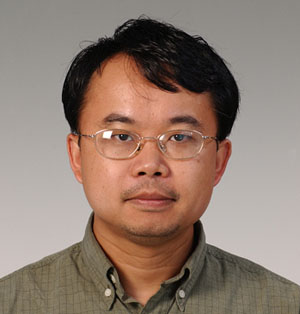M.O. Title:Microbial Diversity of Prokaryotes in Marine Sponges of the Class Demospongiae
Location: Conch Reef, Key Largo, Florida
Intro Narrative:
Sponges are the predominant organisms in many tropical reef ecosystems and contain a great diversity of microbial symbionts. These symbiotic bacteria can be responsible for up to 60% of the weight of the sponges, and many microbes have been found in sponges that have not been isolated from any other ecosystem. Sponges provide an ideal microcosm in which to study the complex microbial symbioses that exist in many marine invertebrates. Of particular interest are the signaling compounds produced by these bacteria that may play a role in sponge colonization. Molecular studies of microbial communities in sponges are increasing our knowledge of microbial diversity in general, and this knowledge may produce many important practical benefits. Many bioactive compounds, including some anti-cancer, anti-AIDS and anti-malarial compounds, have been found in sponges. Some of these compounds are likely to be made by microbial symbionts within the sponges rather than by the sponges themselves. Through learning how the bacteria can be grown without sponges, in fermentation systems, the supply issues of having to harvest sponges from the marine environment could be avoided.
Sponges are the predominant organisms in many tropical reef ecosystems and contain a great diversity of microbial symbionts. These symbiotic bacteria can be responsible for up to 60% of the weight of the sponges, and many microbes have been found in sponges that have not been isolated from any other ecosystem. Sponges provide an ideal microcosm in which to study the complex microbial symbioses that exist in many marine invertebrates. Of particular interest are the signaling compounds produced by these bacteria that may play a role in sponge colonization. Molecular studies of microbial communities in sponges are increasing our knowledge of microbial diversity in general, and this knowledge may produce many important practical benefits. Many bioactive compounds, including some anti-cancer, anti-AIDS and anti-malarial compounds, have been found in sponges. Some of these compounds are likely to be made by microbial symbionts within the sponges rather than by the sponges themselves. Through learning how the bacteria can be grown without sponges, in fermentation systems, the supply issues of having to harvest sponges from the marine environment could be avoided.
Project Goals:
Marine sponges have been shown to be hosts of complex microbial communities, and these symbiotic communities can comprise up to 60% of the sponge biomass. Generally less than 1% of these prokaryotic communities can be grown by standard culturing methods. Specific objectives for this project are to:
- Investigate the presence of as yet un-described Archaea and Bacteria in sponges.
- Develop methods to culture representative species from newly described members of the prokaryotic communities living in the sponges.
- Examine the role of cell-cell signaling in determining and maintaining microbial community structure within sponges.
Principal Investigators:



Copyright on all images and material by Russell Hill, 2005.

